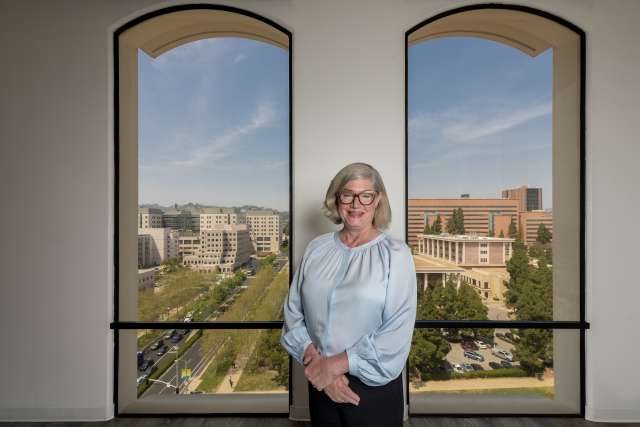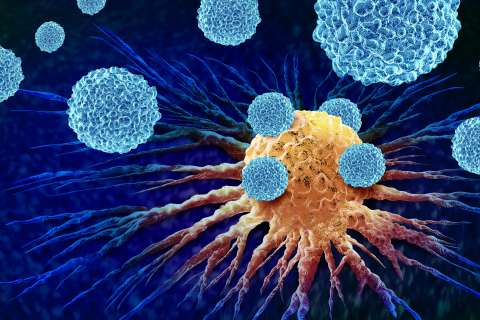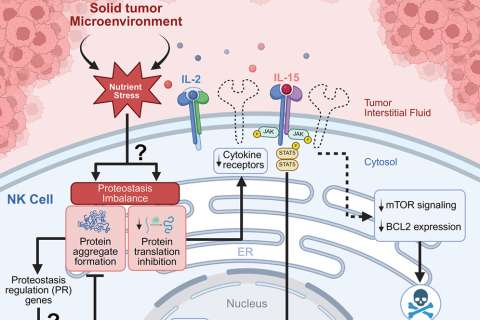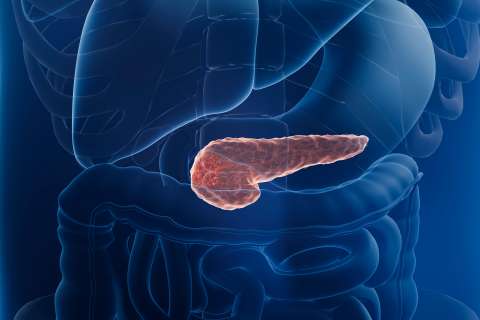After graduating from nursing school with her bachelor’s degree, Barb Jagels, RN, started working in the bone marrow transplant unit in what ultimately became the Fred Hutchinson Cancer Research Center in Seattle.
Fast-forward a few decades and Jagels is now one of the leading cancer care administrators in the United States, directing cancer services at UCLA Health, serving as interim director of the Simms/Mann-UCLA Center for Integrative Oncology and helping guide best practices for cancer care across the country as a newly elected member of the National Comprehensive Cancer Network’s executive committee.
“At every turn in my career, there’s been an opportunity to do something innovative, novel and contribute to the patient’s overall better experience of cancer,” Jagels says. “Cancer has gone from a very acute, life-threatening series of diseases to a chronic condition that many people live with or are cured of and live for many, many years.”
Advances in cancer treatment
The transformation in the experience of cancer is the result of what Jagels describes as “significant and sophisticated” research done at academic medical centers, including UCLA Health.
The National Comprehensive Cancer Network “seeks to foster the next great advances in science,” Jagels says, and translate those findings and improved outcomes into guidelines for best practices.
As a member of its executive committee, Jagels is helping to determine the organization’s priorities over the next five years. She and other experts are focusing on the promise of precision medicine in cancer care, which identifies genetic expressions of cancer conditions and tailors treatment specifically to those expressions.
“Precision medicine is going to revolutionize everything we do,” Jagels says. “It already is.”
She points to the work of Dennis Slamon, MD, PhD, of UCLA Health, whose research identified the HER2 gene common to an aggressive form of breast cancer, leading to the development of the drug Herceptin that’s now standard treatment for those cases.
“That’s the wave of the future: greater sensitivity as we do molecular testing and profiling on each person’s individual cancer type,” Jagels says, “and an ever-growing laboratory science that can help us develop the novel agents to much more precisely attack and hopefully cure those very specific diseases.”
Treatment advances at UCLA Health
As director of cancer services, Jagels oversees radiation oncology, medical oncology and surgical oncology. She’s working to more seamlessly integrate these departments in the treatment of people with cancer.
For example, so many cancer treatments that once required hospitalization can now be provided outpatient.
“We have such terrific opportunity to continue to integrate those services to bring their full potential to our communities around Southern California,” she says.
Jagels is excited to see scientific advances continue to translate to improved outcomes for people with cancer. While cancer is still a life-altering diagnosis, she says, many more people are cured than ever before (especially when the disease is caught early) and others are living well for decades after diagnosis.
“Cancer has really changed in my lifetime,” Jagels says. “And even in the last 10 years, the pace of change has really accelerated.”
Holistic cancer treatment
The Simms/Mann-UCLA Center for Integrative Oncology, which provides comprehensive psychosocial support for people with cancer and their families, can be considered among the cancer treatment advances at UCLA Health. In addition to individual and group counseling, the Simms/Mann Center offers mindfulness instruction, art therapy, qi gong, breathwork sessions, spiritual support, nutrition counseling and workshops focused on sexual health, the financial costs of cancer and more. All its services are provided without charge.
“It’s incredibly innovative and still very rare,” says Jagels, noting that it’s the only program of its kind in the West. “It’s entirely donor-funded. To have all of this world-class care that is so precious and so uncommon anywhere else in academic medicine, and we provide it for free, so that patients of all backgrounds and all socio-demographic categories are able to access our services readily.”
Jagels hopes to expand the National Comprehensive Cancer Network’s guidelines to include some of the psychosocial support the Simms/Mann Center provides. The current guidelines are more focused on treatment of the disease than of the human being who has the disease.
“The whole idea is holistic care,” she says. “And Western medicine has not been great at that.”
The shifts Jagels has witnessed during her career and those she’s helping to spearhead now will impact not only how cancer is treated in the years to come, but how people think about it.
Cancer is a “disease of the aging,” she says, and as Americans live longer, more of us will experience cancer at some point in our lives.
“I think it’s going to be a defining condition for the generations as we age,” Jagels says. “And we’ve already made such strides during my career that I know that in the next 10 to 20 years, the work we’re doing now will set us up for such significant progress in service of better patient care.”




